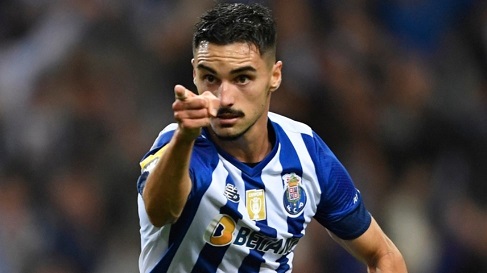There has always been beyond football than just the game itself. It serves as a link between generations and nations. There aren’t many new relationships in sports that feel as softly potent and promising as the one developing between Portugal and Canada.
On one side is Portugal which is a dominant force in European football that is renowned for creating world-renowned figures and athletes who excel on the largest stages around the globe. The other is Canada which is a country that was formerly viewed as an outcast in international football but is now advancing toward a new period of recognition and aspiration as the FIFA World Cup in 2026 approaches.
This partnership’s core is what sets it apart like the significant Portuguese community in Canada and an increasing understanding of the benefits that both countries can provide. Canada offers a quickly growing football infrastructure and a desire to rise up the world rankings while Portugal and the Portuguese football legends give a tradition of world-class athlete growth and tactical expertise.

Cultural bridges and a common history
Football is not the only thing that ties Portugal and Canada together. An active Portuguese minority has thrived in Canadian cities like Toronto and Vancouver for years. It fosters a cultural bond that naturally carries over to the football pitch. Portuguese-Canadian people and their local counterparts were nurtured by the amateur leagues and football schools that many Portuguese immigrants formed after bringing their passion for the game across the Atlantic.
Beyond cultural heritage, this connection is changing now. The second phase is institutional cooperation, which entails creating organised footballing alliances that make use of Canada’s developing infrastructure and Portugal’s technical skills.
Football’s ascent in Canada
The world has taken notice of Canada’s recent successes on the international scene. The women’s national team won Olympic gold in Tokyo in 2021 and the men’s team made a comeback to the FIFA World Cup in 2022 after a 36-year break. The country is making significant investments in grassroots football and infrastructure in anticipation of the 2026 World Cup.
Major League Soccer teams like Toronto FC and CF Montréal are also contributing by boosting young academies and establishing routes to professional football. Partnerships with European footballing nations such as Portugal are also considered to provide Canadian players with advanced training and a competitive advantage.
Portugal: a reliable source of talent
Portuguese clubs such as Benfica and FC Porto continue to export world-class talent from João Félix’s breakthrough at Benfica to Rafael Leão’s rise through Sporting’s academy. It shows a system designed to nurture creativity and adaptability from a young age.
This is precisely the paradigm that Canada wishes to emulate. The foundation for knowledge sharing between the two nations is now being laid by coaching workshops and exchange programmes.
Advantages for both countries
Proven European techniques that can quicken its player development curve could be advantageous to Canada. Canada offers Portuguese clubs and scouts a wealth of undiscovered talent as well as a promising market. Portuguese teams have always been quite good at incorporating the wider variety of talents and styles that come with Canadian football’s multicultural makeup.
Canada has also directly benefited from its national team players gaining valuable experience in the highly reputed Portuguese league, such as former Benfica centre-back Steven Vitória and current FC Porto midfielder Stephen Eustáquio.
Many fans use internet platforms to keep themselves occupied throughout the off-season and when stadiums are empty. They follow training updates or engage in entertaining activities such as participating in fun online polls and trivia. Some join friendly fantasy league competitions, or play football-themed video games to sharpen their skills. Some place small bets on online roulette — not to win big, but for a bit of fun, holding onto the superstition that if the ball lands on their team’s colours, it might predict the outcome of the next game. This ongoing fan interaction keeps the football discourse going all year long and maintains interest.
A significant event for this developing collaboration will be the 2026 FIFA World Cup which Canada will co-host. More Canadian athletes with Portuguese ancestry may compete at the highest level if there is a stronger youth pipeline. Likewise, Portuguese teams that make an early investment could benefit from first access to a growing market.
This is about creating systems and not simply about creating stars. The components are starting to fit together from scouting networks in Lisbon to grassroots football in Ontario.

